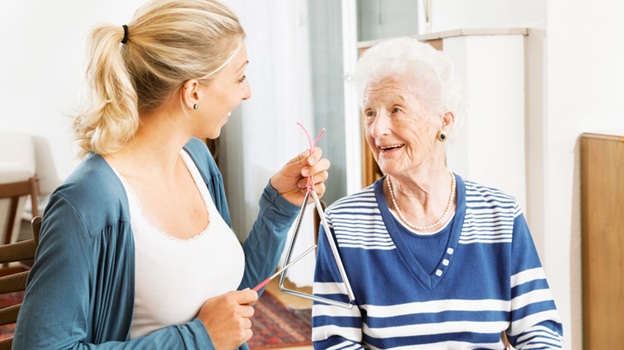
Caring for an aging parent, spouse, or loved one is one of the most meaningful acts of compassion a person can provide. However, the emotional, physical, and mental demands of caregiving can become overwhelming without proper support and self-care. Over time, this can lead to burnout—a state of chronic stress that affects both the caregiver’s health and their ability to provide care. The good news is that with the right strategies, caregivers can reduce the risk of burnout while continuing to offer the love and support their senior family member needs. Here are practical ways to help prevent burnout while supporting a senior loved one.
1. Set Realistic Expectations
It’s natural to want to do everything possible for a senior loved one, but it’s important to recognize your limits. No one person can handle all caregiving responsibilities alone. Setting realistic expectations for what you can provide helps prevent feelings of guilt or frustration. Accept that it’s okay to ask for help or say no when necessary. A balanced approach ensures that both your loved one’s needs and your own well-being are addressed.
2. Prioritize Self-Care
Many caregivers neglect their own health while focusing on their loved one. But self-care isn’t selfish—it’s essential. Maintaining your physical and mental health allows you to provide better support. Make time for activities that recharge you, such as exercise, reading, hobbies, or spending time with friends. Eat nutritious meals, stay hydrated, and aim for adequate rest each night. Even small breaks during the day can make a difference in reducing stress.
3. Seek Support from Others
Caregiving can be isolating, but you don’t have to face the journey alone. Reach out to family members, friends, or community resources for assistance. Whether it’s someone helping with errands, providing occasional respite care, or simply offering a listening ear, accepting support lightens the load. In some cases, involving assisted living caretakers can provide consistent, professional assistance, allowing you to focus on your relationship with your loved one rather than only on their daily care needs.
4. Consider Respite Care
Respite care provides temporary relief for primary caregivers. It allows you to take a break while ensuring your loved one is safe and well cared for. This could involve short-term stays at care facilities, adult day programs, or in-home respite services. Scheduling regular respite care—even for just a few hours a week—can help you rest and return to caregiving responsibilities with renewed energy.
5. Stay Organized
Juggling appointments, medications, meal plans, and household tasks can be overwhelming. Staying organized can reduce stress and help you feel more in control. Use calendars, apps, or planners to track important dates and routines. Creating checklists for daily tasks can also provide clarity and a sense of accomplishment as items are completed. When responsibilities are clearly mapped out, they feel less daunting.
6. Connect with Caregiver Support Groups
Support groups offer a valuable space to share experiences, gain advice, and feel understood. Talking with others who are in similar situations can help reduce feelings of isolation and provide practical solutions to common challenges. Many communities offer in-person groups, and online options are also widely available, providing flexibility for busy caregivers.
7. Communicate Openly with Healthcare Providers
Partnering with your loved one’s healthcare providers can make caregiving more manageable. Don’t hesitate to ask questions about their condition, treatments, or what to expect as needs change. Being informed helps you plan ahead and feel more confident in your role. Healthcare professionals can also guide you to additional resources, including therapies or home care options.
8. Monitor Your Own Emotional Health
Caregivers often put their emotional well-being on the back burner, but chronic stress, anxiety, or depression can quickly lead to burnout. Pay attention to signs of emotional fatigue, such as irritability, sadness, or difficulty concentrating. If you’re struggling, consider speaking with a counselor or therapist who can help you navigate your feelings and develop coping strategies.
Supporting a senior loved one is a journey filled with challenges and rewards. By prioritizing your own health, seeking help when needed, and utilizing available resources, you can reduce the risk of burnout and continue to provide compassionate care. Remember, you don’t have to do it all alone. Involving trusted family members, friends, and assisted living caretakers can make a meaningful difference in maintaining both your well-being and your loved one’s quality of life.



















